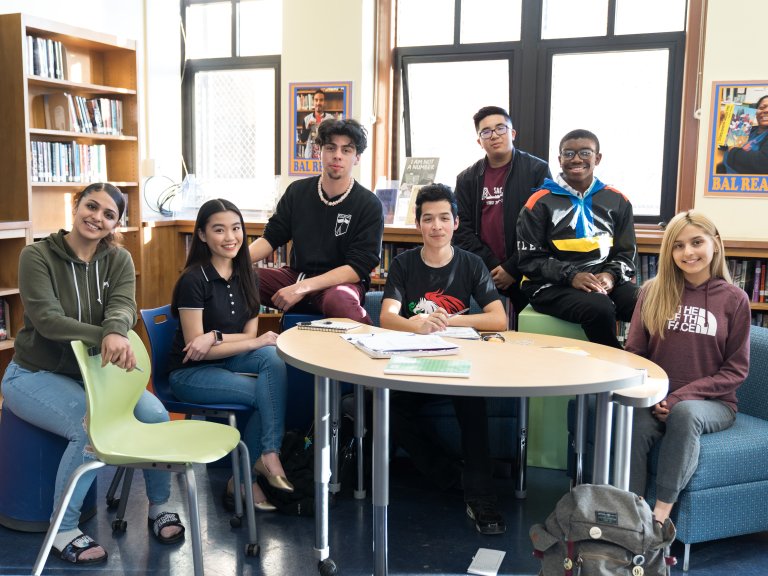The Role of Parents and Educators in the Effort to Save Temecula Schools
The Role of Parents and Educators in the Effort to Save Temecula Schools
Blog Article
The Effect of College Environments on Academic Success and Personal Health
The institution setting dramatically influences both scholastic success and individual well-being, including aspects such as physical layout, class ambience, and interpersonal characteristics. The style of educational rooms, consisting of all-natural lighting and ergonomic furnishings, can boost trainees' concentration and convenience. The top quality of teacher-student partnerships and the nature of peer interactions play pivotal functions in promoting an ambience conducive to finding out and psychological support. Understanding how these various elements interplay to shape student results elevates crucial concerns regarding enhancing instructional setups for alternative growth. Exactly how can colleges strategically boost these facets to better support their trainees?
Physical Format and Layout
Exactly how does the physical layout and style of a school influence academic success? The plan and aesthetic of a college atmosphere can substantially influence pupils' learning outcomes.
All-natural lighting and effective ventilation systems are crucial in boosting cognitive feature and minimizing absenteeism. Studies have actually revealed that classrooms with enough all-natural light boost trainee focus and reduce sensations of drowsiness. Ergonomic furniture tailored to trainees' demands can prevent physical pain, allowing for prolonged focus and engagement in academic tasks.
Accessibility to outdoor rooms and aesthetically pleasing surroundings likewise play a crucial duty - Save Temecula Schools. Green areas and well-maintained college premises offer opportunities for workout and psychological relaxation, both of which are necessary for maintaining high degrees of academic performance. In significance, an attentively developed physical setting can work as a catalyst for academic quality, cultivating an atmosphere that supports both teaching and discovering
Class Ambience
An environment that promotes a feeling of safety, inclusivity, and mutual respect urges students to involve more proactively in their discovering procedures. The setting of a class, consisting of aspects such as lighting, noise degrees, and seating arrangements, can significantly influence trainee focus and motivation.
In addition, the class atmosphere ought to support a culture of partnership and open interaction. When students really feel comfortable revealing their concepts and asking questions, they are extra most likely to involve deeply with the product and establish crucial assuming abilities - Save Temecula Schools. Peer communications and group activities can improve discovering by offering diverse point of views and fostering team effort
Additionally, developing clear assumptions and consistent regimens can produce an organized atmosphere that enables pupils to concentrate on their research studies. By decreasing unpredictability and offering a foreseeable framework, pupils can better manage their time and duties. Eventually, a positive classroom atmosphere not only improves scholastic performance but likewise adds to the total well-being of students, preparing them for future instructional and individual endeavors.
Teacher-Student Relationships
Structure on the value of a positive classroom ambience, the relationships in between teachers and students play an essential function fit academic success. A healthy teacher-student relationship fosters a finding out setting where pupils really feel valued, recognized, and sustained, which considerably boosts their inspiration and engagement. When trainees view their instructors as empathetic and approachable, they are more most likely to get involved proactively in course and look for assistance when required, adding to a much deeper understanding of the subject.

This trust fund enables trainees to share their worries and concepts easily, cultivating a collaborative understanding atmosphere. In significance, solid teacher-student relationships are a foundation of academic success, playing a crucial role in both academic my company achievement and personal growth.
Peer Communications
Peer interactions dramatically influence academic success by forming a trainee's social and cognitive growth. Within the college environment, peer connections function as a fundamental part for discovering and personal growth. Positive peer communications can improve a trainee's motivation and involvement in academic tasks with collaborative discovering and mutual assistance. When pupils interact in group setups, they trade ideas, address problems collectively, and create important thinking skills. Such communications foster a feeling of belonging and community, which is essential for psychological well-being and academic willpower.

Effective peer interactions also add to the advancement of vital life skills, such as interaction, conflict, and collaboration resolution. These social proficiencies are important for both academic success and personal health, emphasizing the relevance of promoting favorable peer dynamics within the institution environment.
Extracurricular Tasks
Engaging in extracurricular activities plays an essential role in a student's academic success and personal advancement. Study consistently indicates that students who take part in extracurricular tasks often tend to accomplish greater academic performance.
Furthermore, extracurricular involvement cultivates a feeling of belonging and community, which is necessary why not find out more for individual health. Participating in group tasks permits students to construct and reinforce socials media, improving their emotional and social knowledge. These communications are crucial for establishing social abilities that are valuable in both scholastic and future professional settings.
Furthermore, after-school activities offer a positive electrical outlet for students to discover their passions and passions beyond the conventional educational program. This expedition can cause the discovery of brand-new abilities and prospective occupation paths, better encouraging trainees to involve more deeply in their academic work. To conclude, the role of after-school activities extends past plain recreation; they are indispensable to fostering an alternative academic experience that promotes both academic success and personal development.
Final Thought
Thoughtfully created physical formats and classrooms, along with positive teacher-student relationships and positive peer communications, significantly improve student inspiration and engagement. These aspects jointly highlight the value of producing and preserving optimal college settings for the advantage of trainees' scholastic and individual development.
Ultimately, a positive classroom environment not just enhances scholastic efficiency however likewise contributes to the overall well-being of students, preparing them for future instructional and individual undertakings.

Report this page